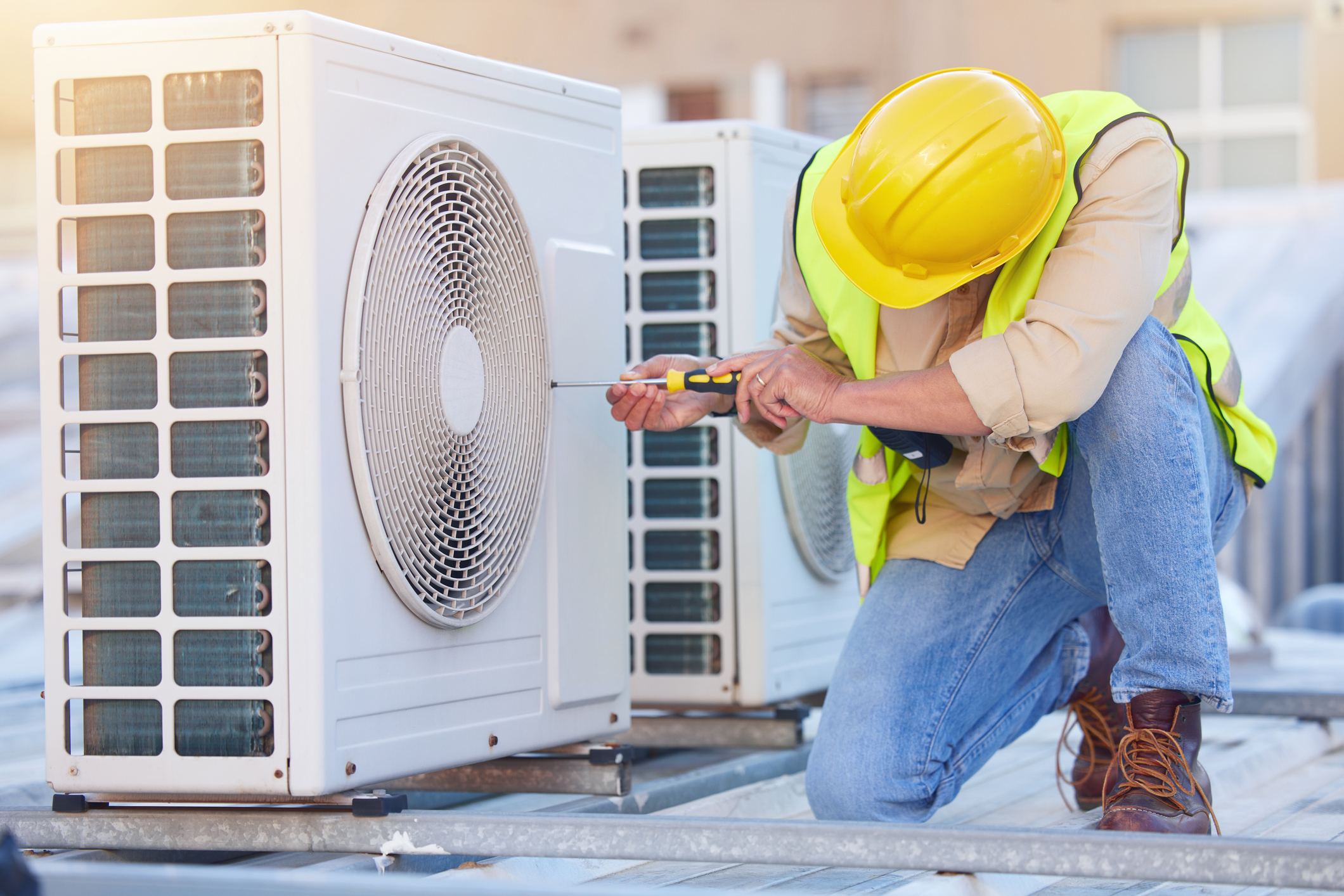Are you considering becoming an HVAC technician, and whether you should focus on residential or commercial HVAC systems? The good news is that you learn about both in the HVAC training program at CyberTex. Classes at the Killeen campus focus on residential and commercial HVAC safety, refrigeration, sheet metal fabrication, and crew leadership.
What is HVAC?
HVAC, or HVAC/R, stands for heating, ventilation, air conditioning, and refrigeration. HVAC systems are divided into residential and commercial. The main difference is the larger size and complexity of the commercial HVAC systems.
Heating
A heating unit warms the air entering a home or commercial business. Heating units can use gas or electricity. Residential and commercial HVAC systems must be regularly serviced and maintained.
Ventilation
Ventilation helps the air stay healthy and breathable. HVAC technicians ensure that all residential and commercial structures are adequately ventilated and air quality is healthy.
Air Conditioning
Air conditioners operate when the outdoor temperatures exceed a comfortable temperature. Both residential and commercial A/C units require periodic filter changes and other refrigerant fluid refills.
Refrigeration
Many commercial businesses utilize refrigeration units to keep food from spoiling. Beverages need to be chilled and ready to consume, and medications need to stay stable at cool temperatures. Refrigeration is also used to keep bacteria from contaminating food.
What is Residential HVAC?
A residential HVAC technician specializes in installing and maintaining heating, ventilation, and air conditioning (HVAC) systems. They provide maintenance and repair problems with HVAC systems using electric, gas, oil, hot water, and stem units. They install, service, repair, and troubleshoot residential HVAC systems.
What is Commercial HVAC?
Commercial HVAC technicians service retail stores, grocery stores, medical clinics, and restaurants, to name a few. They can repair large-scale HVAC systems in office buildings and other facilities. Commercial HVAC systems are larger and more complex and demand their own specialized training.
What is Commercial Refrigeration?
Like residential homes, businesses need refrigeration repair and maintenance. Commercial refrigeration professionals help businesses, from small convenience stores to supermarkets and huge production plants, with their refrigeration and freezer systems. Commercial refrigeration technicians manage projects hands-on, diagnosing mechanical problems and developing practical solutions. Many companies need to keep products refrigerated, and they need system maintenance, repair, and replacement. The field of commercial refrigeration will continue to be in demand.
Commercial refrigeration can also become an HVAC technician’s specialty; they may decide to operate exclusively with commercial refrigeration systems.
What are the 3 Major Differences Between Residential and Commercial HVAC?
There are a few differences between residential and commercial HVAC systems that a technician should consider. These differences include:
Size
A commercial HVAC unit is much larger than a residential unit. Most commercial units are stored on the roof of a building because of the size and noise. Residential HVAC units are smaller and are installed in a home’s backyard.
Complexity
Commercial systems must be more adaptable to fit the building and the increased number of occupants. Commercial systems require more power and must remove more exhaust, making them more complex. Residential HVAC systems still need to be installed and maintained by a trained HVAC technician, but they are manufactured to strict specifications and may be universally installed.
Maintenance Costs
The larger commercial HVAC unit costs more to maintain as it has many more parts to repair and replace. It also takes a highly trained commercial HVAC technician to install the unit, maintain efficiency, and ensure it is energy efficient.
What Work Environment Will You Choose?
Once you’ve finished learning about the residential and commercial HVAC fields, you’ll decide on a work environment. You can work for a franchise company or mom-and-pop shop or become a self-employed independent contractor with an HVAC license.
Working as an Independent Contractor
For those HVAC technicians who want to be self-employed, you get to set your schedule. You are your own boss, managing your clientele, customer service, business permits, and bookkeeping. Choose which residential or commercial HVAC job elements are a priority, and you will know whether you want to be an independent contractor.
Working for an HVAC Employer
Working for an HVAC employer may be the right career path if you only want to focus on HVAC systems instead of managing clientele, customer services, and bookkeeping. Your employer finds the customers and sets up appointments for you to manage. You have a full day of work and can have a better work/life balance.
How Do You Become an HVAC Technician?
The path to an HVAC career starts by earning your HVAC diploma at CyberTex. This program teaches you the basics of heating, ventilation, air conditioning, and refrigeration.
During an HVAC technician program at CyberTex, you learn about the fundamentals and what you need to pass the licensing and EPA 608 certification. The EPA 608 certification standardizes the management and disposal of refrigerants according to the Clean Air Act. All HVAC technicians must pass this exam, so they know how to safely work with, dispose of, and maintain systems that use refrigerants.
HVAC Technician Diploma
Want to achieve HVAC certifications to start a rewarding career as an HVAC technician in Texas? With more than two decades of success in the medical, health, and IT sectors, we added an HVAC course to our curriculum. We proudly announce that we have flexible day and evening classes for the HVAC program.
CyberTex’s HVAC program can be completed in as little as 11 months by attending full-time with the flexibility of day and evening classes. You can take the EPA–608 certification from the US Environmental Protection Agency with our training.
Want to learn more? Contact us today.





